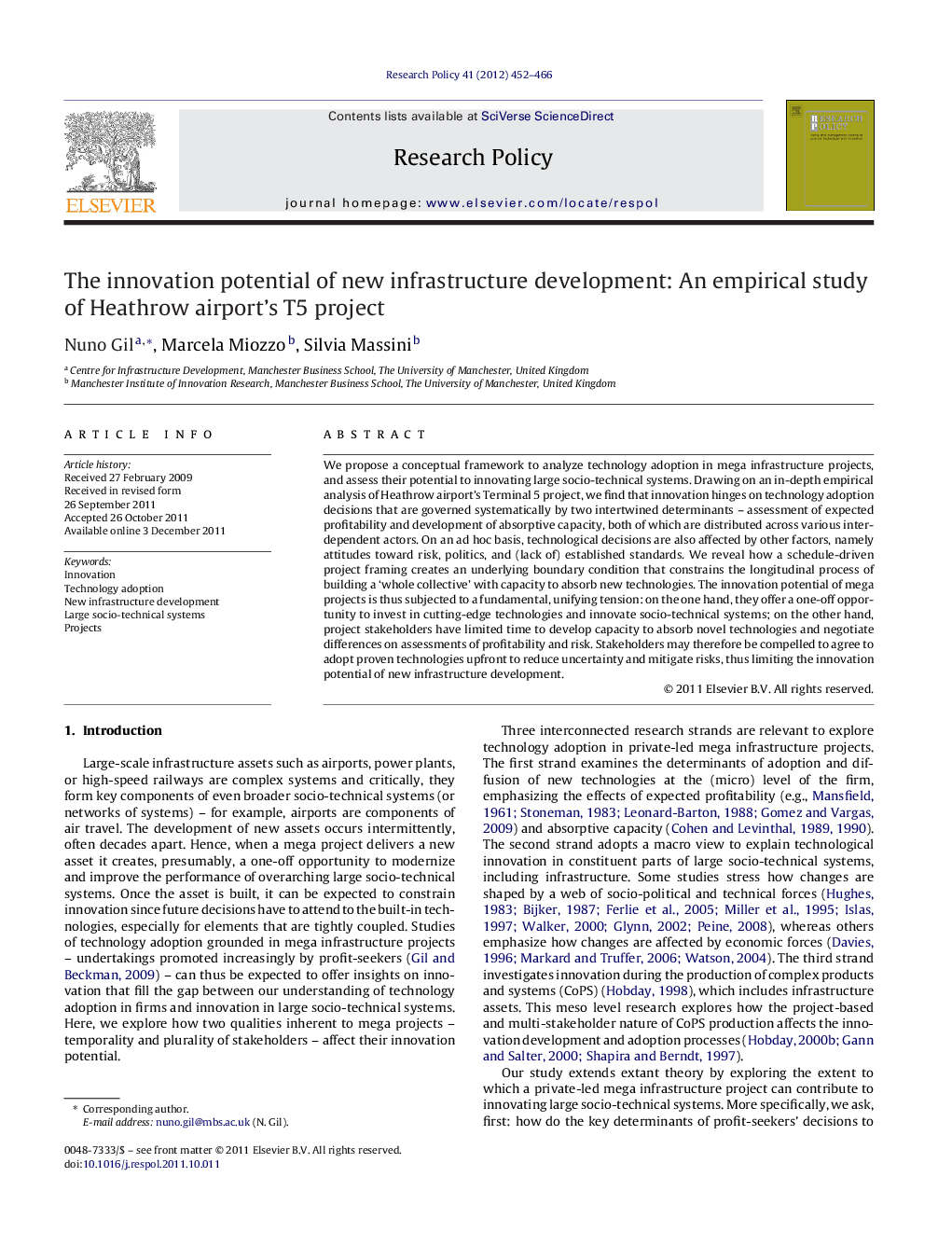| Article ID | Journal | Published Year | Pages | File Type |
|---|---|---|---|---|
| 984740 | Research Policy | 2012 | 15 Pages |
We propose a conceptual framework to analyze technology adoption in mega infrastructure projects, and assess their potential to innovating large socio-technical systems. Drawing on an in-depth empirical analysis of Heathrow airport's Terminal 5 project, we find that innovation hinges on technology adoption decisions that are governed systematically by two intertwined determinants – assessment of expected profitability and development of absorptive capacity, both of which are distributed across various interdependent actors. On an ad hoc basis, technological decisions are also affected by other factors, namely attitudes toward risk, politics, and (lack of) established standards. We reveal how a schedule-driven project framing creates an underlying boundary condition that constrains the longitudinal process of building a ‘whole collective’ with capacity to absorb new technologies. The innovation potential of mega projects is thus subjected to a fundamental, unifying tension: on the one hand, they offer a one-off opportunity to invest in cutting-edge technologies and innovate socio-technical systems; on the other hand, project stakeholders have limited time to develop capacity to absorb novel technologies and negotiate differences on assessments of profitability and risk. Stakeholders may therefore be compelled to agree to adopt proven technologies upfront to reduce uncertainty and mitigate risks, thus limiting the innovation potential of new infrastructure development.
